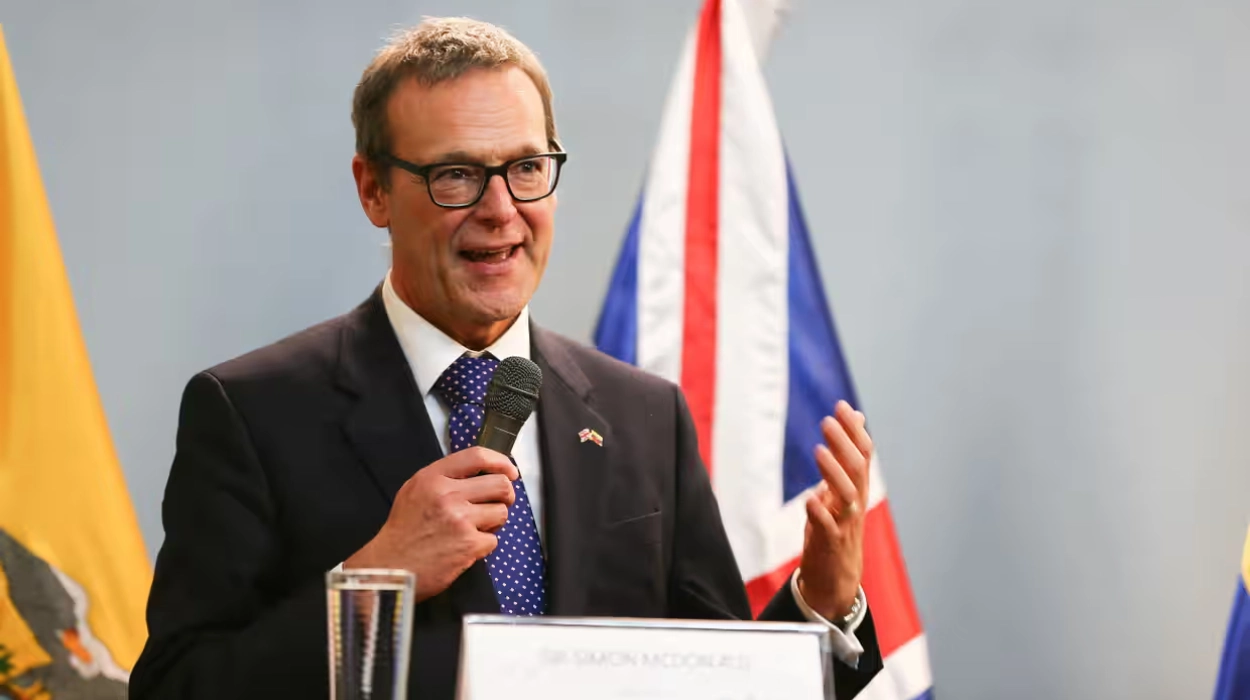UK (Parliament Politics Magazine) – Ex-Foreign Office head Simon McDonald urged Chancellor Rachel Reeves not to cut foreign aid, warning it would harm Britain’s reputation and global relief efforts.
As reported by The Guardian, the former Foreign Office chief warns Ms Reeves against cutting aid, amid concerns she may redirect funds to bolster defence spending.
What did Simon McDonald say about cutting foreign aid?
A senior former civil servant, Simon McDonald, said reducing aid could harm the UK’s international image, as Ms Reeves reviews spending to trim costs across Whitehall.
He stated,
“At times of financial need, development assistance is an easy target for trimming because international assistance is not generally voters’ priority.”
Mr McDonald said,
“I hope the Treasury is not sharpening its knife for further cuts. Not only has the 2020 cut damaged the UK’s international reputation, but the international need for such help is greater than ever with the slashing of USAid.”
The former civil servant warned that budget sections with minimal voter relevance are at risk during financial strain. He believes the Foreign Office can prove its impact but stresses that spending outside voter interests remains vulnerable.
What did Simon McDonald say about cutting the UK’s diplomatic corps?
Mr McDonald suggested reducing the number of civil servants in London but warned that reducing Britain’s diplomatic corps could be detrimental.
He stated,
“The network is vital to the UK – it is our eyes, ears and brains on the ground all over the world,”
adding,
“You never know where might suddenly be important to UK interests.”
The former civil servant pointed out that slashing 50 Foreign Office jobs would yield just £5m in savings. He added that FTSE CEOs were shocked by its low costs, as companies invest much more for less global reach.
What did government sources say about potential aid cuts?
A government respondent dismissed concerns over potential aid cuts as “pure speculation.” They reaffirmed, “Our development spending is central to achieving a world free from poverty on a liveable planet, with the UK remaining one of the top donors among the G7.”
When asked if aid funding was threatened, a senior official close to the spending review remarked, “Everything is at risk in this spending review.”
According to government insiders, the aid budget is being considered for potential savings, as the chancellor pressures ministers to justify each area of government spending.
What are the concerns over potential UK aid cuts following US reductions?
Officials raised concerns over aid funding as Trump’s decision to freeze US aid and downsize its agency staff caused significant setbacks.
The president’s move has triggered the abrupt shutdown of HIV services in South Africa, leading to 5,000 health staff being dismissed in Ethiopia and the potential waste of nearly $500m in food aid.
Britain allocates approximately 0.5% of its gross national income to aid, following a reduction from 0.7% in 2021 under Boris Johnson. While Labour has pledged to return to 0.7% “as soon as fiscal circumstances allow,” experts warn it may face another potential cut.
The head of Bond, an organisation which advocates for development NGOs, Romilly Greenhill, criticised potential aid cuts, stating,
“Any suggestions to follow in the US’s footsteps and cut development and humanitarian spending to fund defence spending would be reckless, short-sighted and would undermine the UK’s security interests.”
Which government departments face the biggest cuts amid defence and budget pressures?
Under last year’s budget plans, unprotected departments faced annual reductions of just over 1% from 2025/26 to 2027/28. However, increasing UK borrowing costs have forced the chancellor to explore further spending reductions to avoid exceeding initial borrowing limits.
The government’s promise to raise defence spending to 2.5% of GDP has further complicated the chancellor’s job, a pledge the prime minister has reiterated in response to Trump’s discussions with Russia over Ukraine.
While the defence, health, and education budgets remain intact, ministers in other departments are instructed to prepare for budget reductions of between 5% and 11% over the coming three years.
Is Rachel Reeves’s £2 billion aid cut facing cabinet resistance?
Ms Reeves’s proposal to trim nearly £2 billion from the foreign aid budget faces strong opposition from cabinet ministers.
David Lammy, the Foreign Secretary, is among the ministers urging the Chancellor to provide more aid funding, citing concerns over the consequences of the proposed cuts.
Charities, including the UK division of a group led by David Miliband, have raised concerns that Ms Reeves’s plans will push the aid budget to its lowest level in 17 years.

